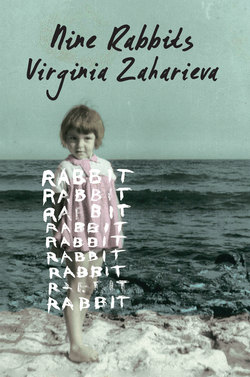Читать книгу Nine Rabbits - Virginia Zaharieva - Страница 17
На сайте Литреса книга снята с продажи.
ОглавлениеBlood
We often went to play on the swings at the elementary school. Once, after a rainstorm, a huge puddle formed beneath them. I suggested we line up some paving stones and lay some plastic on top so we could stop the swings without getting wet. The paving stones were soon lined up and covered with plastic.
Rufi jumped on and started swinging hard.
I yelled to him, “Wait for me to fix the plastic.”
It was fluttering around and getting caught on the swing, but all that work had driven him into a frenzy and he didn’t hear me, so I waited for the swing to go up high so I could fix our installation as much as possible. I managed it twice. There was only one corner left to tuck under the stones. I waited for Rufi to swing up high and . . .
When I came to, I was lying near the puddle, with the taste of iron in my mouth and an intense pain where my head should have been. I tried to get up, but I couldn’t move. I wondered how my body could disobey me. There was no one in the schoolyard, but I remembered that I’d been with Rufi. I shifted and looked around—there, where I was lying, was a dark red stain in the dirt.
Somehow, I managed to reach the school’s outdoor bathrooms. While I was trying to wash the blood from my hands and face, my legs gave out again. I made it to the sidewalk in front of the school and sat down, slumped against the fence. I was cold and shaking all over. I couldn’t walk; I didn’t know what to do. It was then that I understood for the first time that I am alone in my pain. It set me apart and there was no mistaking where I ended and where the world began. When I’m happy, I have no limits, but my pain is mine alone. Mine. I sat there and, as happens at such moments, I felt colors more intensely—it was sunset and the sea was mixing pink, purple, blue, and green. The sea in spring is very gentle. I wondered what to tell my grandmother. Would she beat me? I don’t know how long I sat there, but somebody was saying something, nudging my shoulder. A strange woman.
“What happened?” she asked.
I told her it was from the swing.
“Let’s get up now. What’s your name?”
“Manda.”
“Can you walk, Manda? We’re going to the doctor.”
“OK.”
The woman grasped my arm firmly and we set off toward the old town. We were walking along the isthmus; this time it seemed endless to me. At some point, another woman stopped us.
“What’s going on? Where are you taking that little Gypsy,” she asked.
“To the clinic. I found her at the school.”
I listened to this conversation as if from a distance, not even making an effort to raise my head. I looked myself over. I was wearing homemade checkered woolen slippers with no laces, thick homespun mud-spattered pants made from Grandpa’s old trousers, and one of Maruna’s T-shirts, now red. My long hair was matted with blood. I realized that I was poor. And badly dressed. I felt terribly ashamed—almost as much as the year before, when those of us from the lower grades went to greet the older kids at the start of the school year with poems. I had worked on my little verse all week with Nikula, but when my turn came, I went out onto the steps and began, “Oh, you bear, big bear . . .” At that moment I saw all those eyes fixed on me, I saw my mother’s and grandmother’s faces filled with expectation, and I forgot the poem. It seemed like I was standing there on those steps for ages. The kids started to laugh. I gathered my strength, took a deep breath and tried to think of some kind of ending: “Oh, you bear, big bear, how long your tail is.” The audience burst into such unrestrained laughter that I ran back toward the teacher. I wanted to be invisible.
Now, the same as then, I wanted to be invisible as I stood there with those unfamiliar women. My legs started shaking even harder.
The women were chattering away. I heard myself say: “I’m not a Gypsy. I’m Manda.”
They suddenly seemed to remember me and we hurried toward the clinic. There, the doctors shaved my head around the cut, stitched up my scalp and even put in a few staples so the wound wouldn’t open up. They bound up my whole noggin, and one nurse who lived near us led me home.
They told me to lie down and not get out of bed for three days. Nikula freaked. She put me to bed and made me soup. She was silent, scurrying back and forth, clearly angry. I felt guilty. The silence weighed on me. If only she would yell a little bit!
In the evening my mother came back from the sanatorium and when she saw me all bandaged up she almost fainted in the doorway. She rushed over to hug me, but grandma pulled her away: “That’s enough of your mollycoddling. She’ll get over it soon enough, just like a cat.”
My mother hugged me and caressed me. Naturally, I felt like the hero of the evening, to whom nothing could be denied. Suffering has its advantages. Later I would sometimes bandage up my hand or foot and go to school like that, reaping the benefits.
I was mad at Rufi for a few days, but I forgot about his treacherous flight when he gave me a fantastic pair of pliers left by his late father, and once again we were friends.
